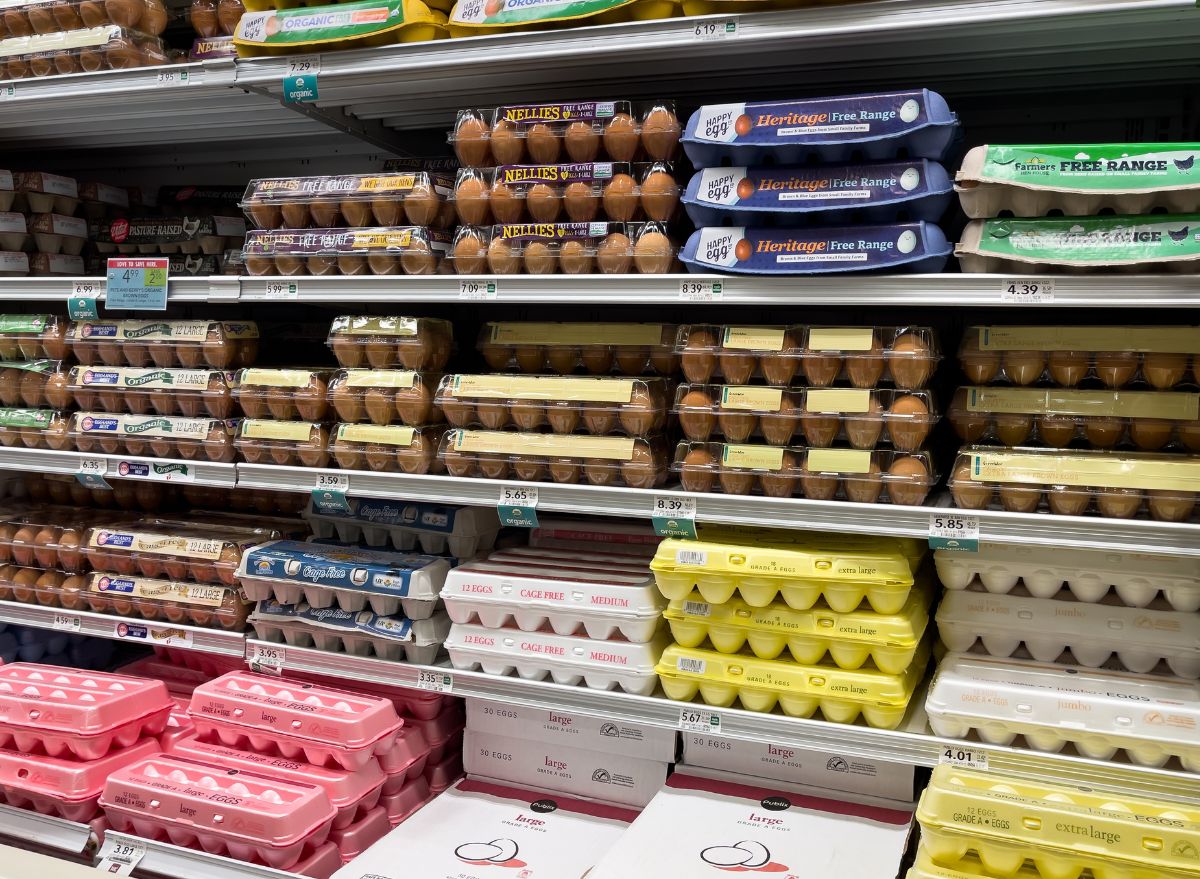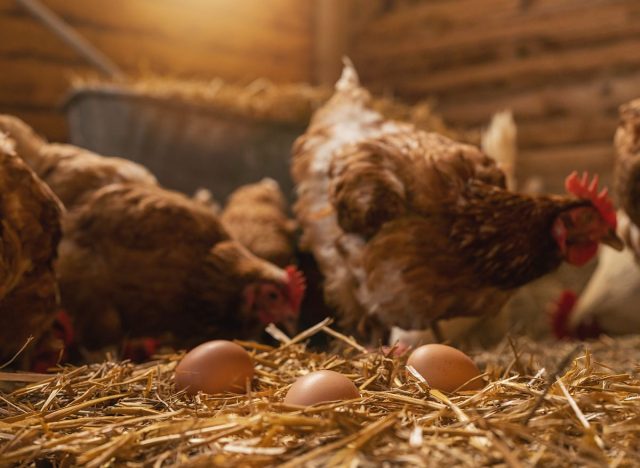Egg Prices Are Skyrocketing Again Due to a New Bird Flu Outbreak

Just a year after egg prices finally started to come down after soaring to record highs in 2022, the staple grocery item is getting more expensive again—and the trend isn't likely to reverse anytime soon, following a new bird flu outbreak.
Egg prices increased a notable 8.4% from January 2024 to February 2024, according to the latest Consumer Price Index (CPI) report. CPI data shows that a dozen Grade A large eggs cost an average of $3 in February, which is higher than the roughly $2 average from this past fall, CNN reported.
To be clear, eggs still aren't nearly as pricey as they were a year ago. The CPI report revealed that the grocery item was actually 17% less expensive in February 2024 compared to February 2023. Still, the jump in egg prices between January and February this year was only the latest surge after months of steady increases.
Consumers, unfortunately, aren't likely to see relief from egg sticker shock anytime soon as poultry producers throughout the United States contend with a new surge of bird flu. America's largest egg producer, Cal-Maine Foods, announced earlier this week that it had to cull (or selectively slaughter) about 1.6 million hens and 337,000 young chickens after some birds tested positive for highly pathogenic avian influenza (HPAI) at one of its Texas facilities.

The culled birds represented 3.6% of the company's total flock as of March 2024, according to a press release. Cal-Maine Foods—which produces major egg brands such as Farmhouse Eggs, Egg-Land's Best, and Land O' Lakes—has temporarily halted production at the facility as it follows protocols set by the USDA.
The company stressed that no eggs have been recalled and there is no known bird flu risk with eggs that are currently on the market. It also said that it "continues to work closely with federal, state, and local government officials and focused industry groups to mitigate the risk of future outbreaks and effectively manage the response." However, Cal-Maine Foods isn't the only producer contending with the virus right now.
Michigan's Department of Agriculture and Rural Development announced earlier this week that it found evidence of bird flu at a commercial facility, while farms in Texas, Kansas, and Minnesota also detected the virus last month, per CNN. Additionally, HPAI was recently detected in dairy cows in multiple states, while a human just tested positive for the virus after being exposed to a dairy cow that may have been infected (the Centers for Disease Control and Prevention considers the risks to human health from bird flu to be low).
Bird flu can spread rapidly through poultry flocks, and farms will often slaughter scores of birds to prevent transmission. As past bird flu outbreaks have demonstrated, egg producers can have trouble keeping up with demand after culling large numbers of birds, causing egg prices to surge as a result. Cal-Maine Foods' recent slaughter of more than a million hens and young chickens therefore raises concerns about the potential impact on its egg prices, though the company said it is "working to secure production from other facilities to minimize disruption to its customers."
Cal-Maine Foods did not immediately respond to our queries for comment on how the bird flu outbreak may affect prices.









